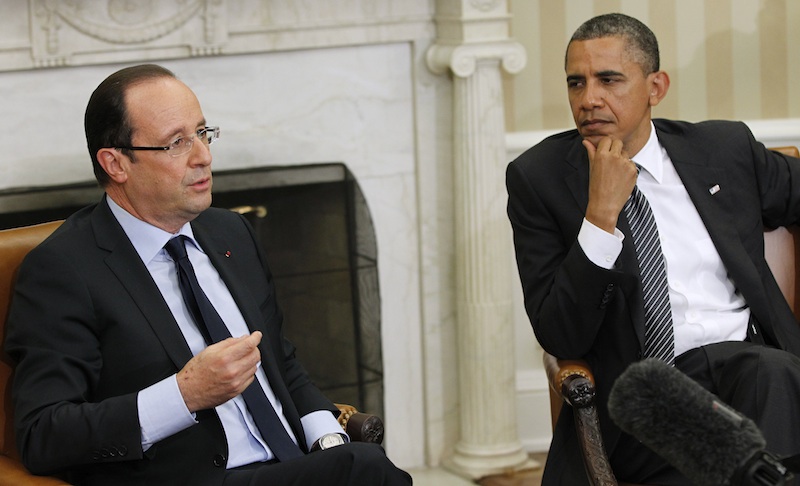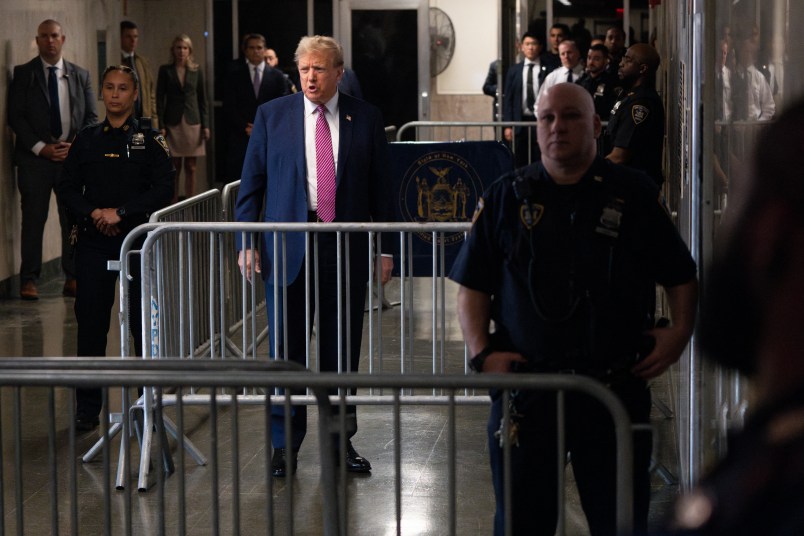PARIS (AP) — The French government said Wednesday it wants the start of major trade negotiations between the United States and the European Union suspended for two weeks amid anger over alleged U.S. eavesdropping on its European allies.
The country, whose Socialist government has never seemed hugely enthusiastic about the free trade deal, will try to get other EU members to agree to the request — but its chances looked slim. The EU Commission, which negotiates for the 28 member states, and Germany showed no signs of agreeing to a delay to the start of talks planned for the beginning of next week, which come after months of protracted and painful efforts to come up with a common European stance.
France was at the heart of those difficulties, insisting on protections for its film and other cultural subsidies.
Just Tuesday night, the Commission said the planned start of technical negotiations in Washington “should not be affected” by the surveillance scandal that has emerged in recent days. But France is again raising its voice in protest.
“It seems wise to us to suspend (the talks) temporarily, for a period of 15 days,” French government spokeswoman Najat Vallaud-Belkacem told reporters Wednesday.
After reports that the U.S. National Security Agency bugged EU diplomatic offices in Washington and infiltrated its computer network, Vallaud-Belkacem said mutual trust is needed before launching talks on such a huge trade deal, expected to provide a boost to economies on both sides of the Atlantic by removing tariffs and other barriers to trade.
She said France will first “discuss with our European partners to take a joint decision.”
Her boss, President Francois Hollande, had hinted at a threat to trade talks in unusually outraged comments Monday demanding that the United States immediately stop any such eavesdropping.
In Berlin, German government spokesman Steffen Seibert suggested Germany is sticking to the plan to start talks as planned, despite Germany’s anger over the U.S. snooping allegations. Speaking to reporters earlier Wednesday, he said that “we support the Commission in its effort to begin the negotiations on July 8.”
The Commission, too, insisted that the trans-Atlantic atmosphere needed to clear up for the talks to be successful.
“For such a comprehensive and ambitious negotiation to succeed, there needs to be confidence, transparency and clarity among the negotiating partners,” it said in Tuesday’s statement.
On Wednesday, the EU trade commissioner’s office said it is sticking to its position.
It’s unlikely that France could block the talks on its own. Last month, the Commission was given the mandate from all members to start the talks after striking a deal with France about keeping the movie and television business out of the negotiations to shield Europe’s audiovisual industry from Hollywood.
EU Trade Commissioner Karel De Gucht said hinging the start of talks on such political issues as the eavesdropping scandal would amount to the EU shooting itself in the foot. The EU, he said, was entering talks out of self-interest, not to be subservient to the United States.
A free trade pact would create a market with common standards and regulations across countries that together account for nearly half the global economy. A recent EU-commissioned study showed that a trade pact could boost the EU’s output by 119 billion euro ($159 billion) a year and the U.S. economy by 95 billion euros ($127 billion). For Europe in particular, that extra growth could be crucial to help pay high public debt and bring down unemployment, which is at record highs.
_____
Associated Press writers Raf Casert in Brussels, Frank Jordans in Berlin and Angela Charlton in Paris contributed to this report.
Copyright 2013 The Associated Press.










